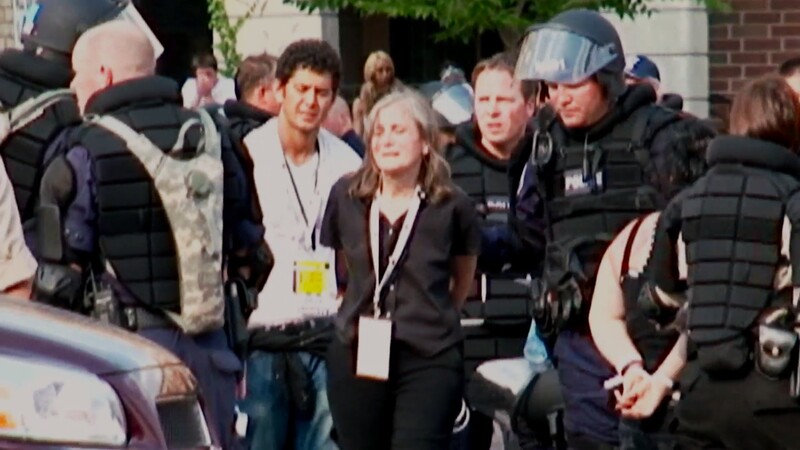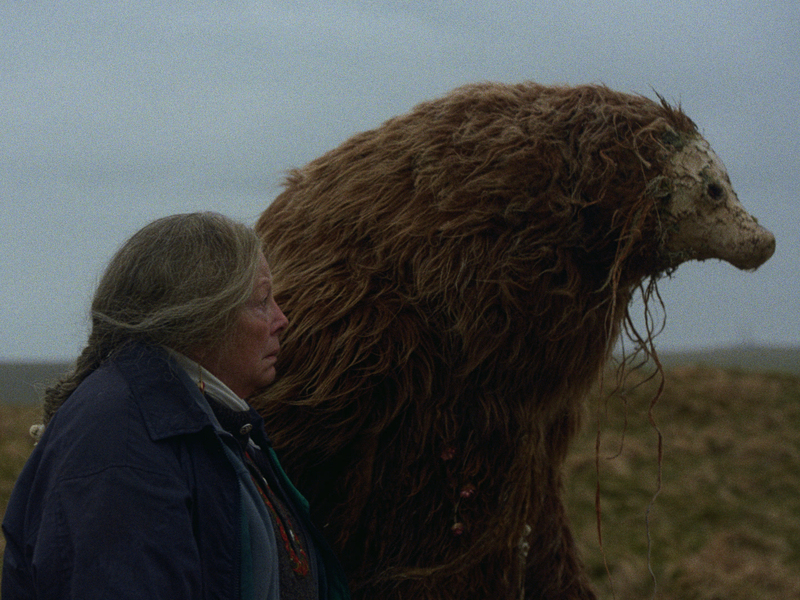
How Independent Media Survives Pressure
MOVIE REVIEW
Steal This Story, Please!
–
Genre: Documentary, Journalism, Politics, Biography
Year Released: 2025
Runtime: 1h 41m
Director(s): Carl Deal, Tia Lessin
Where to Watch: shown at the 2025 DOC NYC Film Festival
RAVING REVIEW: STEAL THIS STORY, PLEASE! understands that journalism, at its best, is not a set of hot takes—it’s a muscle memory for asking difficult questions when the room would prefer silence. The film follows Amy Goodman across three decades of reporting and the daily grind, framing the Democracy Now! anchor not as a sainted outlier but as a working reporter who refuses to internalize the limits imposed by corporate consolidation, political intimidation, or apathy. Directors Carl Deal and Tia Lessin shape that vision into a narrative: a story about the persistence required to keep a public square open when the gatekeepers continually change the locks.
As a portrait, the film is refreshing because it strikes a balance between awe and access. We see the on-air presence—crisp, never wasting a minute—and the off-air human being who jokes with colleagues, bears the weight of trauma, and still hunts for the next source. The clearest success is its treatment of “independent media” as a practice rather than a slogan. We watch the work. Calls are made, archives are built, and segments are constructed piece by verified piece. Instead of treating Goodman’s career like a highlight reel, the film lingers on process: what it means to show up, day after day, and insist that context belongs in the same sentence as breaking events.
Zoe Keating’s score complements that ethic. It doesn’t elbow its way for attention; it underlines momentum and dread, and the brief exhale after a story lands. The editorial (yes, the film’s pace, not the music) finds a sweet spot between then and now. Archival footage isn’t dusted off for sentiment—it’s threaded into present-tense questions. That dynamic is what elevates the film above the standard “greatest hits” biography. You feel time collapsing: yesterday’s arguments about press freedom are indistinguishable from today’s, and that is not an accident; it’s a warning.
What the documentary does beautifully is humanize the toll and the motive. Field scenes remind us that “press freedom” isn’t a legal abstraction; it’s a physical risk made in crowds and checkpoints. Studio scenes remind us that “objectivity” is often weaponized to erase lived context and that fairness is not the same as balance. The movie shows how Goodman navigates those traps by prioritizing proximity to the people most affected by policy and power. That editorial north star—who’s paying the price?—gives the film its moral clarity without turning it into a sermon.
There’s also a surprising warmth here, an insistence on joy as fuel. The laughter and banter aren’t extras; they’re part of a newsroom culture that resists burnout by honoring the plain pleasure of doing the work well. The directors understand this is not a personality cult. It’s a collective built around a host whose name is on the chyron but whose mission is distributed across a team. Watching that team function—shaping questions, corralling guests, stitching context—is catnip for anyone who cares how information is made.
For audiences who already know Goodman, the film expands the timeline; for those who don’t, it serves as an accessible primer on why independent reporting matters beyond partisan rhetoric. In a media climate saturated with reaction, the documentary offers a reminder that attention can still be disciplined: follow the story, test the claim, center the impacted, refuse to normalize harm. That isn’t glamorous. It is, however, the oxygen of democratic life.
If the film’s title reads like a dare, the content justifies it. The point is not ownership; it’s absorption. Take the story, the film argues. Run with it. Cite it, dispute it, extend it, but do not let it evaporate into the feed. That’s the through-line from the earliest fieldwork to the present broadcast: make forgetting harder. The result is a documentary that doubles as an operating manual for people who want to do news in a way that respects both evidence and empathy.
In a year crowded with powerful documentaries, STEAL THIS STORY, PLEASE! stands out because it champions a practice rather than a position. It makes a case for the daily work of keeping the truth public. And it does so with craft, clarity, and a refusal to surrender curiosity. That’s the kind of film that doesn’t just inform; it steadies you. Ultimately, while the film has its roots before the current administration took office, it ironically offers an even stronger message than it would have had it been released previously.
Please visit https://linktr.ee/overlyhonestr for more reviews.
You can follow me on Letterboxd, Instagram, Twitter, and YouTube. My social media accounts can also be found on most platforms by searching for 'Overly Honest Reviews'.
I’m always happy to hear from my readers; please don't hesitate to say hello or send me any questions about movies.
[photo courtesy of ELSEWHERE FILMS]
DISCLAIMER:
At Overly Honest Movie Reviews, we value honesty and transparency. Occasionally, we receive complimentary items for review, including DVDs, Blu-rays, CDs, Vinyl Records, Books, and more. We assure you that these arrangements do not influence our reviews, as we are committed to providing unbiased and sincere evaluations. We aim to help you make informed entertainment choices regardless of our relationship with distributors or producers.
Amazon Affiliate Links:
Additionally, this site contains Amazon affiliate links. If you purchase through these links, we may receive a commission. This affiliate arrangement does not affect our commitment to honest reviews and helps support our site. We appreciate your trust and support as you navigate these links.



Average Rating